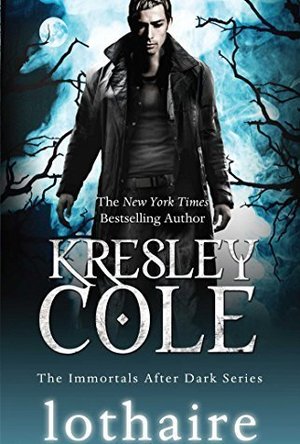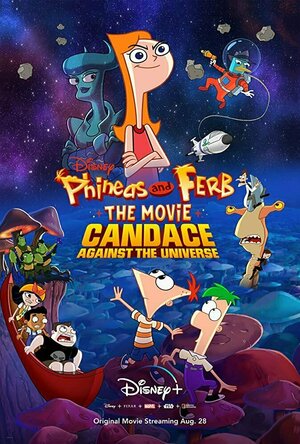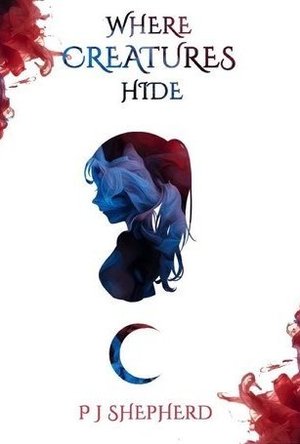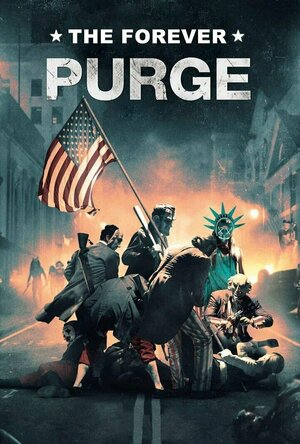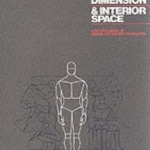
Human Dimension and Interior Space
Julius Panero and Martin Zelnik
Book
The study of human body measurements on a comparative basis is known as anthropometrics. Its...
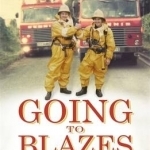
Going to Blazes?: Further Tales of a Country Fireman
Book
It's 1987 and 26-year-old Malcolm Castle is going up in the world. He's made it through eight long...
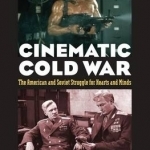
Cinematic Cold War: The American and Soviet Struggle for Hearts and Minds
Denise J. Youngblood and Tony Shaw
Book
The Cold War was as much a battle of ideas as a series of military and diplomatic confrontations,...
Leanne Crabtree (480 KP) rated Lothaire (Immortals After Dark #12) in Books
Jan 6, 2021
Lothaire The Enemy of Old's book had been brewing for a really long time and I couldn't wait to start it to see what kind of woman it would take to bring Lothaire to his knees. And the answer is one tough chick in the form of Ellie Peirce.
It started with a flashback to Lothaire's childhood and I almost wanted to throw my book when I saw what kind of a man he had for a father and what happened to his poor mother. It helped us to understand him a little more.
Then we forwarded to "5 years ago" and we met Elizabeth Peirce, a poor girl sharing a body with an evil deity who enjoyed killing people while Ellie slept. It was really gruesome reading as Saroya killed the people who had come to try and exercise her from Ellie.
And that is the three main characters met. Saroya, I did not like at all, she was manipulative and just plain evil. Lothaire, after the beginning, I could understand him more and though he's a bit arrogant in the things he says and does I did grow to like him. Ellie was just awesome, she didn't take none of Lothaire's crap and liked to wind him up. It was quite fun reading.
One thing I did enjoy was Lothaire being brought to his knees by a human. He needed a woman exactly like Ellie and she was a force to be reckoned with at times.
The only thing I didn't like, and what lost it half a star for me, was their split. It all seemed to be going so well for them and then Lothaire did something against her will and then for like the next 60 pages they're not together. I was like WTF?
In the end it all worked out and apart from that one thing mentioned above, I really liked it. This is probably one of my favourite books in the series!
Lyndsey Gollogly (2893 KP) rated Fearless (Scarlet Suffragette #1) in Books
Apr 21, 2021
Kindle
Fearless ( Scarlet suffragette book 1)
By Nicola Claire
Once read a review will be written via Smashbomb and link posted in comments
Nicola Claire's captivating new Gothic romance series introduces a dark and sinister early settler New Zealand at the end of the nineteenth century - brightened by a fearless and talented heroine and a loyal and secretive police inspector...
Free spirit. Brilliant. A Liability?
Doctor Anna Cassidy has been trained by the best; the former Chief Surgeon for the Auckland Police Force. She knows how to dissect a body. She knows how to treat any ailment. And she knows how to find a cause of death.
But society is not ready for a female surgeon.
Fighting for what she believes in has been ingrained in Anna since she was a young child. But the battles she faces now are not all based on equality. A murderer stalks her fellow Suffragettes and the police inspector in charge of the case could be Anna's downfall.
Experienced. Dedicated. Something to hide?
Inspector Andrew Kelly holds duty and honour in the highest regard. His role as a detective proves just that; he never stops until justice is served. Love is something he has forsaken, for reasons he'd rather you didn't know.
But Anna is not a woman a man can ignore.
Fighting his instincts with cold determination is something Kelly has become accustomed to. But a murderer is loose in his adopted city, bringing memories to the fore of a killer who walked in the shadows of Whitechapel, and shining light on a dark past the Inspector is trying hard to forget.
A gritty, twisted, and authentic Victorian romantic suspense, sure to rip you apart... just like old Jack.
This had all of my favourite things! Gruesome murders linked to Jack the Ripper, historical romance , strong female lead and a very good story. Although the murderer was quite clear to me from the beginning I absolutely loved reading it play out! Definitely worth a try if you like any of the things I mentioned!

Fearless (Scarlet Suffragette #1)
Book
Nicola Claire's captivating new Gothic romance series introduces a dark and sinister early settler...
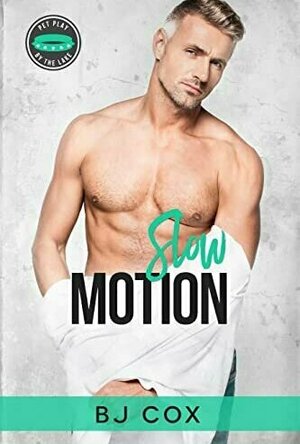
Slow Motion (Pet Play by the Lake)
Book
Leaving everything behind and starting over as a masseur at the Mountain Lake Resort might have been...
MM Contemporary Romance Kink Pet Play
Lee (2222 KP) rated Phineas and Ferb the Movie: Candace Against the Universe (2020) in Movies
Sep 2, 2020
For the uninitiated, Phineas and Ferb are two step-brothers who spend their summer holiday coming up with highly elaborate ways to occupy every day, usually resulting in some wacky adventures and an extremely frustrated sister, Candace. Candace is forever trying to bust the boys and get their mum to catch them in the act, only to fail every time as some last second incident conveniently erases any evidence. Oh, and they also have a pet platypus called Perry, who without their knowledge works as an agent for a secret animal organisation, trying each episode to thwart the latest evil scheme hatched by Dr Doofenshmirtz. It’s very funny, features some incredibly catchy songs, and is just an extremely well written show for both kids and adults to enjoy. Running for four seasons, and racking up over 200 episodes before ending in 2015, the show also spawned a number of crossover specials involving Marvel and Star Wars.
Candace against the universe is the second feature length Phineas and Ferb movie and opens with Candace, lamenting the sad fact that no matter what she does, she never manages to successfully bust her brothers. All of this is delivered in the form of a song, and acts as a nostalgic reminder of some of the crazy inventions and adventures the boys have been involved in over the course of the series. The song ends with another perfect chance for Candace to bust the boys, who are currently enjoying themselves with their friends in the back garden. But of course, she fails. After heading out to the front of the house, and meeting up with friend Vanessa, she spots an alien spaceship. Believing her brothers to be behind it somehow, she and Vanessa are sucked up inside, before taking off and shooting up into the sky.
The boys see Candace flying away in the ship, and after photographing the alien license plate, are able to quickly identify where she’s headed (as you do…). They round up the gang and quickly rustle up a portal in their back garden (as you do…), in order to jump to the planet where Candace is being taken. The portal takes them via Doofenshmirtz Evil Inc, where they pick up Heinz Doofenshmirtz and Perry the Platypus (unknowingly), before heading off in a spaceship of their own. When they do catch up with Candace, they discover that she is being hailed as ‘the chosen one’ by the alien race that captured her. But does the queen of the planet have a more sinister reason for bringing Candace all this way?
It’s fair to say that, unless you’re already a fan of the show, you’re unlikely to have any interest whatsoever in watching Candace Against the Universe. For fans of the show though, this is a wonderful trip down memory lane, unless you’ve already spent all of lockdown recently catching up on all of the episodes on Disney+, and it feels so good to be back in the company of such wonderful characters. There’s a lot of comfort to be had from the running gags and themes of the episode format of the show, and the only thing I found with this movie, and the crossover shows, is that they end up feeling like a dragged out episode at times, tending to sag a little around the middle.
It’s a very minor complaint though. The songs are as good as ever, including a song from Doofenshmirtz about ‘adulting’, and the humour is still smart and on point, although Buford does tend to get some of the funnier lines in my opinion. And when Buford gets ridiculed for bringing a canoe with him on their trip to the alien planet, and Doofenshmirtz gets laughed at for inventing something as stupid as a “Chicken Replace-inator” – basically a gun which swaps whatever you fire at with the nearest chicken – you just know they’re working on delivering us some great gags later on throughout the movie. And obviously, Perry the Platypus gets to save the day as usual, and without anyone even realising it. It’s like being back in the company of old friends. Fingers crossed that this isn’t the last we see of Phineas, Ferb and the gang.
Becs (244 KP) rated Where Creatures Hide in Books
May 17, 2019
Review:
I was sent Where Rogues Hide to read and review for my honest opinion but I only got about 20 pages in when I realized that I needed to read Where Creatures Hide (which is book 1 of the series) and Where Puppets Hide (book 2 of the series). So I rented them off of Amazon so I can give them a quick read through and review. Here is everything that I have felt throughout my read through of Where Creatures Hide.
The story starts by introducing the "Chant of Creatures." This then leads to the opening of the story where there are a bunch of lab technicians doing tests on a girl that is frozen in a tomb of ice. They decide to melt the ice so they can carry out other tests that would lead to the girl's puppet soul being released.
A note on puppet souls:
Puppet souls are the darkest part of a creature's mind. The part of the mind that tells you you're not good enough. That voice that can break you down until you're nothing. They are extremely dangerous because they are numb beings that enjoy killing for pleasure, even if it costs them their own life. "Now what I mean here is that when you give into your dark thoughts, you forget about everything around you. Your family, your friends, the people who love you, the people who matter most. You don't see them, all you see is a shadowy haze of darkness, nothing else. The sun doesn't shine, rain pours thicker than it ever has before but you don't care because you're falling. Falling into that endless bottomless pit of ebony nights. You're not scared because everything you see means nothing. Everything you hear means nothing. The people who call your name, mean nothing... Falling into your puppet soul is like ecstasy. You crave for silence, bliss, happiness and you think the only way you're going to get it is if you truly allow it to overcome you. Even if it means hurting the people around you, and yourself."
The girl's puppet soul ends up releasing for only a short moment before she passes out. This is where Alex comes into the story as he was the only one to survive the release of the girl's puppet soul. Where Creatures Hide follows that girl's story. Her name is Dawn, she is a creature with a puppet soul and has no recollection of who she really is but she's determined to figure that out, even if it means hurting others around her.
"Because love thrives so much more than fear and darkness. Loyalty lies so much deeper with family than it does an army."
Characters:
Alex - the leader of Europha and one of Titan's sons. He is light in a dark and cruel world.
Dawn - the main character with a puppet soul. There is a twist that I can't reveal about her because it's a spoiler, but it was amazing!
Xavior - my baby, my smol cinnamonroll, my love. Xavior is by far my favorite character. He's just so innocent and loves to eat - I can get down with that!
Aziel - a god sent from higher up gods to find and protect the princess, eventually he must... wait, I can't tell you that cause it's a spoiler!
Luna - this little girl right here has my heart wrenched into a million pieces. I want to smother her into my arms and protect her from the world but at the same time, she's strong and independent and doesn't need any protection as long as she has her violin.
Titan - Alex's father. A gruesome man who wants to control all
Inaya - the princess that is to save her people from Titan's grasp
Tremayne - a phoenix lady who is cursed with not being able to touch anybody. Raised Alex after he lost his mother.
Ava - a vampire who doesn't come in until roughly the halfway mark of the book. She ends up standing close with Uma and Susi to protect them.
Uma - a bad ass little cat girl who I just wanted to cuddle in my arms!
Susi - wolf sidekick and protective of Uma
Reasons why I rated it 5 stars:
1. The plot:
I've never read anything by PJ Sheperd and I honestly have no idea why. PJ is an amazing human being with great storytelling skills. Where Creatures Hide packed a punch that I was not ready at all for. I bawled my eyes out, I fell in love, my heart raced at the twists and turns that littered throughout this breathtaking novel. There was an aura of mystery across the entirety of the novel and it honestly added such an appeal to the plot that left me craving more.
2. My enjoyment:
I absolutely 100% enjoyed reading Where Creatures Hide. The execution of the writing was amazing and the amount of background, development, and story that was packed into this little novel was a whirlwind of a roller coaster ride that I will gladly take over and over again.
3. Character and story development:
Guys! The character development within Where Creatures Hide is some of the best I've seen. PJ Sheperd does an amazing job and it was honestly a lot better than quite a few popular authors that have great editors. The story development was a little slow at first but with how the story ended up laying out, it made total sense the way that it was written.
4. Grammar and spelling:
PJ Sheperd has had a lot of hardships finding a good editor as each one has screwed her over. So I am not rating her on grammar and spelling as she is a new-ish indie author. There weren't many grammatical and spelling errors, just a few that could be overlooked but I happened to notice. She knows all about them already.
5. The overall story:
I absolutely am in love. I cannot express how much I've come to love this story-line just know that it's a lot. I can't wait to get my hands on some physical copies so I can reread the story. I'm already ready to do it!
"When you have strength, you fear nothing, and when you fear nothing you overcome the darkness with a blazing beacon of light."
There are three (3) different covers for each book in the Where Creatures Hide series. Each cover has a bit of extra stuff added to either the story or at the end of the book.
OG paperback cover - original PG-13 storyline
Special Edition paperback cover - smut filled storyline
Hardback cover - smut filled storyline + artwork
Chris Sawin (602 KP) rated The Forever Purge (2021) in Movies
Dec 14, 2021
Written by The Purge creator James DeMonaco and directed by Everardo Gout, The Forever Purge is the fifth film in the franchise and its first entry since The Purge TV series ended after only two seasons in 2019.
Taking place primarily in Los Felis Valley, Texas, The Forever Purge follows Mexican refugees Adela (Ana de la Reguera) and Juan (Tenoch Huerta), who despite having made a life in America after living in the country for just ten months, continue to find themselves the victims of racism.
A talented cowboy, Juan works for the financially successful Tucker family on their ranch alongside Dylan (Josh Lucas), a member of the Tucker family who isn’t as good of a cowboy as Juan and lets his “white man good, Mexican bad” mentality drive his actions way more often than he should.
With the announcement that the Purge will be reinstated, the two buckle down and prepare to survive their first ever experience with the country’s most gruesome tradition. While the two successfully find sanctuary and survive the initial 12 hours of the sanctioned Purge, they emerge to find that many US citizens have just outright refused to stop purging.
Amidst the chaos, Canada and Mexico open their borders for six hours, allowing anyone not interesting in partaking in the events and wants to survive to flee to one of respective countries. However, the two countries also announce that after these six hours pass, they will be closing their American borders forever, preventing any further escape.
As the entire nation falls into chaos, its citizens begin to realize that The Forever Purge has begun.
The fifth film in the franchise and the latest installment since The Purge tv series ended in 2019, The Forever Purge is pretty much of the same for the horror franchise – in other words, it’s not going to make or break the opinion you already have about these movies.
A definite improvement over The First Purge, which one could argue is the worst film in the series, the performances in The Forever Purge in particular are leaps and bounds better in comparison to those found in its predecessor
You know how there are some movies where, for some reason or another, you don’t watch every trailer it drops before release, and thus are end up surprised when the film turns out to be completely different from the one-note-concept you imagined it would have?
While the upside to this avoidance of marketing material is that you’re almost completely in the dark about a given film prior to seeing it, the downside is that what your own imagined concept of the film may have more more potential than the final product.
The Forever Purge was one such film for me. For some reason, I thought the movie took place in a not-too-distant future where the majority of the country had become a desolate wasteland, water was scarce, and tumbleweeds were the closest thing to a pet anyone had.
Not only that, but I imagined that The Purge, long-outlawed in this post-apocalyptic future, had been reinstated as a full-time event by a group of crazed desperadoes.
Sadly, my idea of a western-slash-Mad Max-inspired Purge film ended up being way more interesting than The Forever Purge actually was, as most of the film’s creativity is found not in the Purge itself, but rather in the expansion to the franchise’s lore – specifically the state in which the USA is left in by the end of the film, as well as the end credits reveal of where Americans across the country are located
A Purger in The Forever Purge, directed by Everardo Valerio Gout.As a result, The Forever Purge ends with the franchise seemingly having lost whatever bite it may have once had. Kills are about as memorable as a bug splat on your windshield while driving on the highway, character development is minimal at best, and you aren’t invested in the outcome of what’s transpiring whatsoever.
You also don’t really know who the protagonists of the film are. Do you root for the successful family that doesn’t know how to cooperate outside of its own race, or the married couple that came to this country illegally?
Furthermore, why is it that each film’s unique masked purgers, who literally show up for only a handful of scenes in each of their respective appearances, are the best part of these films? It’s like really awesome DLC for a lifelessly dull video game.
While the action-horror film does at least introduce two strong female characters, Dylan Tucker’s wife, Cassidy (Cassidy Freeman), isn’t one of them. Her defining characteristics are that she’s pregnant and helpless.
However, Dylan’s younger sister, Harper (Leven Rambin), is awesome. She knows how to use a gun, is resourceful, intelligent, and breaks the ‘dumb blonde’ stereotype we’re all too familiar with.
Ana de la Reguera also rectifies her death in Army of the Dead with her performance as Adela, a former member of a group of women who fought against the cartel in Mexico who can fight, has knowledge of weapons, and knows how to navigate the city in the safest way possible. In other words, she’s a bad ass.
While The Forever Purge is meant to serve as a ‘final entry’ for the franchise, everything is left wide open at the end of the film, just in case another sequel gets greenlit. After all, we know how the general movie-going population just loves to keep mediocre franchises alive.
As such, nothing is resolved by the end of film, and the Forever Purge ends up being just what it sounds like: never ending.
The issue with this non-ending is that where the franchise could potentially go and where it’s actually going are two entirely different things, and thus the end result of the Forever Purge is way more disappointing because of this split.
A lackluster Purge entry at best that is only considered decent because the film that came before it is so awful, The Forever Purge does put some effort into attempting to put a different spin on how we view immigrants, but even that seems half-cocked at best.
With a concept this stagnant, The Forever Purge has successfully done what other horror movies have never been able to do; make deaths, murdering, and killing a total bore. Hopefully, with any luck, The Purge franchise will pillage and murder itself with this entry.
